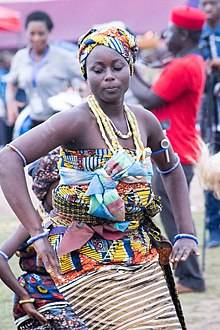The Ewes are an ethnic group found primarily in Ghana, Togo, and Benin. They are estimated to be over three million in population and speak the Ewe language, which belongs to the Niger-Congo language family. The Ewes are known for their unique cultural practices, including their traditional religion, music, dance, and art.
The Ewe people in Ghana are predominantly found in the southeastern part of the country, particularly in the Volta Region. This region is made up of numerous smaller communities, including Anlo, Ho, Hohoe, and Ketu. The Ewes in Ghana heavily rely on agriculture, with most of them practicing subsistence farming. Their main crops include cassava, yams, maize, and rice. They are also known for their weaving and pottery traditions, with craftspeople producing beautiful textiles and pottery items.
In Togo, the Ewes are one of the largest ethnic groups, and they mainly reside in the southeastern and central parts of the country. Their agricultural practices, social structure, and religious beliefs are similar to those of their Ghanaian counterparts. However, the Ewes in Togo are also known for their skills in woodcarving and have gained recognition for their intricate statues and masks made from wood.
Benin also has a sizable Ewe population, with most of them being concentrated in the southern region of the country. In Benin, the Ewe people are mainly subsistence farmers and fishers, with the coastal communities using the sea for their livelihoods. Fishing is particularly important in the region, with fresh and smoked fish being sold in local markets.
The Ewe people have a unique cultural identity, which is evident in their music, dance, and art. The Ewe music is characterized by complex polyrhythms and features drumming as the main instrument. They also have a rich dance culture, which is an integral part of their socio-cultural practices. The Ewe dance is energetic, often accompanied by acrobatics, and represents various stages of life, such as puberty and marriage.
The Ewe people also have a unique traditional religion that is based on animism. They believe in a supreme being and ancestor worship, with their religious practices being closely tied to their everyday lives. They also have a rich history and mythology, which is passed down through oral traditions.
In conclusion, the Ewe people are a unique ethnic group with a rich cultural identity that has been preserved over generations. Their agricultural practices, music, dance, art, and traditional religion make them stand out among other African cultures. The Ewe people in Ghana, Togo, and Benin have contributed significantly to the cultural diversity of West Africa and remain an important part of the region's social fabric.




No comments yet
Be the first to share your thoughts!